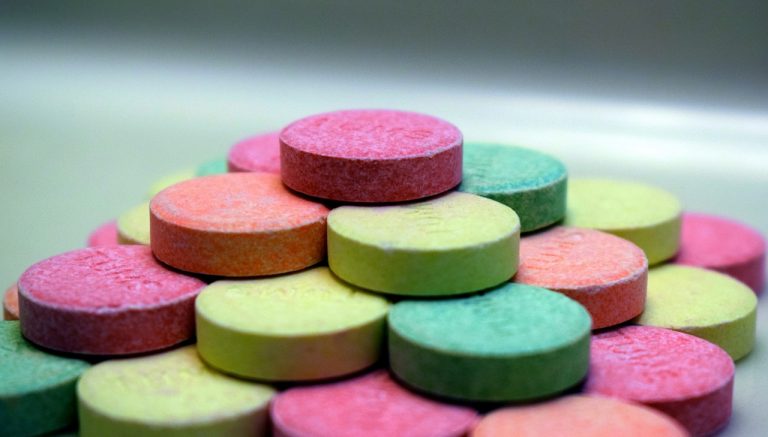
How to Treat Indigestion at Home
Symptoms of indigestion can include uncomfortable abdominal fullness after eating, or you may have pain or a burning sensation in your upper stomach.
Indigestion isn’t a disease, but rather a symptom of other gastrointestinal problems, such as an ulcer, gastritis, or acid reflux.
Many people will have indigestion at some point. Instead of reaching for over-the-counter antacids to calm your stomach, you might want to try controlling symptoms with ingredients and herbs in your kitchen.
Here’s a look at eight home remedies that can provide quick relief for indigestion.
Peppermint is more than a breath freshener. It also has an antispasmodic effect on the body, making it a great choice for relieving stomach problems like nausea and indigestion. Drink a cup of peppermint tea after meals to quickly soothe your stomach or keep a few pieces of peppermint in your pocket and suck on the candy after eating.
While peppermint can ease indigestion, you shouldn’t drink or eat peppermint when indigestion is caused by acid reflux. Because peppermint relaxes the lower esophageal sphincter — the muscle between the stomach and the esophagus — drinking or eating it can cause stomach acid to flow back into the esophagus and worsen acid reflux. Peppermint tea is not recommended for people with GERD or ulcers.
Chamomile tea is known to help induce sleep and calm anxiety. This herb can also ease gut discomfort and relieve indigestion by reducing stomach acid in the gastrointestinal tract. Chamomile also acts as an anti-inflammatory to stop pain.
To prepare chamomile tea, place one or two teabags in boiling water for 10 minutes. Pour in a cup and add honey, if desired. Drink the tea as needed to stop indigestion.
Consult a doctor before drinking chamomile tea if you take a blood thinner. Chamomile contains an ingredient that acts as an anticoagulant, so there’s the risk of bleeding when combined with a blood thinner.
The claimed health benefits of apple cider vinegar range from improving the condition of skin to encouraging weight loss. It may also help to ease indigestion.
Since too little stomach acid can trigger indigestion, drink apple cider vinegar to increase your body’s production of stomach acid. Add one to two teaspoons of raw, unpasteurized apple cider vinegar to a cup of water and drink for fast relief. Or stop indigestion before it occurs by drinking the mixture 30 minutes before eating.
Even though apple cider vinegar is safe, drinking it in excess or undiluted can cause side effects such as tooth erosion, nausea, throat burn, and low blood sugar.
Ginger is another natural remedy for indigestion because it can reduce stomach acid. The same way too little stomach acid causes indigestion, too much stomach acid has the same effect.
Drink a cup of ginger tea as needed to soothe your stomach and get rid of indigestion. Other options include sucking on ginger candy, drinking ginger ale, or making your own ginger water. Boil one or two pieces of ginger root in four cups of water. Add flavor with lemon or honey before drinking.
Limit your ginger consumption to 3 to 4 grams per dayTrusted Source. Consuming too much ginger can cause gas, throat burn, and heartburn.
This antispasmodic herb can also remedy indigestion after a meal, as well as soothe other gastrointestinal problems like stomach cramping, nausea, and bloating.
Put 1/2 teaspoon of crushed fennel seed in water and allow it to boil for 10 minutes before drinking. Drink fennel tea whenever you experience indigestion. Another option is to chew fennel seed after meals if certain foods cause indigestion.
Possible side effects of fennel include nausea, vomiting, and sun sensitivity.
Baking soda can quickly neutralize stomach acid and relieve indigestion, bloating, and gas after eating. For this remedy, add 1/2 teaspoon of baking soda to 4 ounces of warm water and drink.
Sodium bicarbonate is generally safe and nontoxic. But drinking large amounts of baking soda can bring on a few unwelcome side effects, such as constipation, diarrhea, irritability, vomiting, and muscle spasms. If you drink a solution containing 1/2 teaspoon of baking soda for indigestion, don’t repeat for at least two hours.
According to a 2013 studyTrusted Source, adults should have no more than seven 1/2 teaspoons in a 24-hour period and no more than three 1/2 teaspoons if over the age of 60.
The alkaline effect of lemon water also neutralizes stomach acid and improves digestion. Mix a tablespoon of lemon juice in hot or warm water and drink a few minutes before eating.
Along with easing indigestion, lemon water is also an excellent source of vitamin C. However, too much lemon water can wear down tooth enamel and cause increased urination. To protect your teeth, rinse your mouth with water after drinking lemon water.
Licorice root can calm muscle spasms and inflammation in the gastrointestinal tract, which both can trigger indigestion. Chew licorice root for relief or add licorice root to boiling water and drink the mixture.
Although effective for indigestion, licorice root can cause sodium and potassium imbalances and high blood pressure in large doses. Consume no more than 2.5 grams of dried licorice root per day for fast relief. Eat or drink licorice root 30 minutes before eating or one hour after eating for indigestion.
